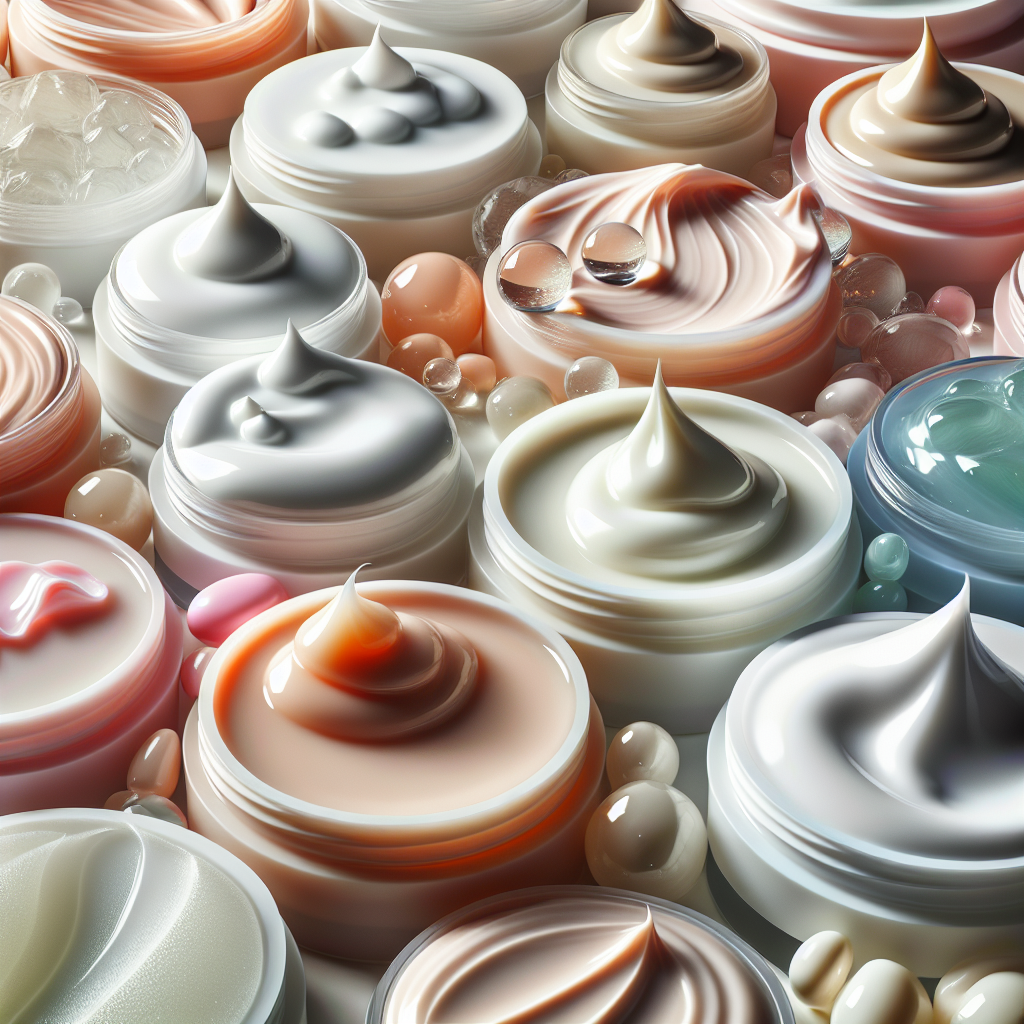Skincare is an essential aspect of personal health that transcends mere aesthetics. It’s a practice that can enhance the skin’s integrity, alleviate various skin conditions, and fortify the skin against environmental stressors. Central to any effective skincare routine is the use of a suitable moisturizer. But with the plethora of options available, how do you choose the best moisturizer for your skin type?
Understanding your skin’s unique needs is the first step in selecting an appropriate moisturizer. Skin types range from dry, oily, combination, sensitive, to normal, and each type has specific requirements that can be met with the right product.
Moisturizers for Dry Skin
Dry skin can feel tight, flaky, and itchy, making it imperative to choose a moisturizer that offers deep hydration. Look for products containing hyaluronic acid, a powerful humectant that can hold up to 1000 times its weight in water, thus providing lasting moisture. Emollients like shea butter and oils such as jojoba or argan can also help by creating a protective barrier that locks in moisture.
Moisturizers for Oily Skin
Oily skin produces excess sebum, which can lead to a shiny complexion and acne. It’s a misconception that oily skin doesn’t need moisturizing. In fact, hydration can help regulate oil production. Opt for lightweight, water-based or gel moisturizers that are non-comedogenic, ensuring they won’t clog pores. Ingredients like salicylic acid can also help control excess oil and prevent breakouts.
Moisturizers for Combination Skin
Combination skin features both oily and dry patches, usually with oiliness in the T-zone (forehead, nose, and chin) and dryness on the cheeks. Balancing these areas requires a moisturizer that’s hydrating yet not overly rich. A lightweight lotion or serum that contains both humectants, like glycerin, and emollients is ideal.
Moisturizers for Sensitive Skin
Sensitive skin can react to various ingredients, resulting in redness, itching, or rashes. It’s crucial to choose a moisturizer free from potential irritants like fragrances, dyes, and alcohol. Look for calming ingredients such as aloe vera, chamomile, and oatmeal.
Moisturizers for Normal Skin
Normal skin has a balanced sebum production and minimal issues. However, it still requires hydration to maintain its health. A simple, lightweight moisturizer that maintains moisture levels without adding excess oil will suffice.
For those with skin conditions like eczema or psoriasis, or for more mature skin types, it’s essential to seek products that address these specific needs. For instance, cold weather skin care strategies can be vital for those with eczema who might experience flare-ups due to cold, dry air.
The Role of Skin Health
Maintaining skin health is not just about looking good; it’s also linked to overall well-being. Healthy skin acts as a barrier against pathogens and helps regulate body temperature. For more comprehensive insights on maintaining skin health, consider exploring Avix Health’s extensive resources on skin health.
Ingredients to Look For
When selecting a moisturizer, pay attention to ingredients that target specific concerns:
- Antioxidants: Vitamins C and E, green tea, and resveratrol can help protect the skin from environmental damage.
- Peptides: These can help stimulate collagen production, aiding in skin firmness and elasticity. Learn more about the role of peptides in skincare.
- SPF: Daily sun protection is crucial. Some moisturizers include SPF, which can protect against premature aging and skin cancer. Integrating SPF into your routine is essential, as discussed in the benefits of SPF in makeup routines.
External Resources for Further Reading:
- A study on the efficacy of hyaluronic acid in moisturizers for hydrating the skin.
- An overview of non-comedogenic ingredients and their importance for oily skin.
- A guide on choosing moisturizers for different skin types from DermNet NZ, a comprehensive dermatological resource.
Daily Application Tips
Applying moisturizer effectively is just as important as choosing the right one:
- Cleanse: Always apply moisturizer to clean skin to ensure better absorption.
- Gentle Application: Apply the moisturizer with gentle upward strokes to avoid pulling the skin downwards.
- Consistency: Use your moisturizer twice daily, in the morning and at night, for best results.
Lifestyle Considerations
Your lifestyle can also impact your skin’s hydration levels. Consuming vitamin-rich foods can improve skin vitality from within. Adequate water intake, balanced diet, and avoiding excessive alcohol or caffeine are also critical factors.
Conclusion
Choosing the right moisturizer is a personalized journey that requires understanding your skin type and its specific needs. By considering your skin’s unique characteristics and the ingredients that cater to them, you can select a product that not only moisturizes but also nourishes and protects your skin.
Remember, healthy skin is a reflection of overall health. Incorporating a suitable moisturizer into your daily routine is a small but significant step towards a holistic approach to well-being.



